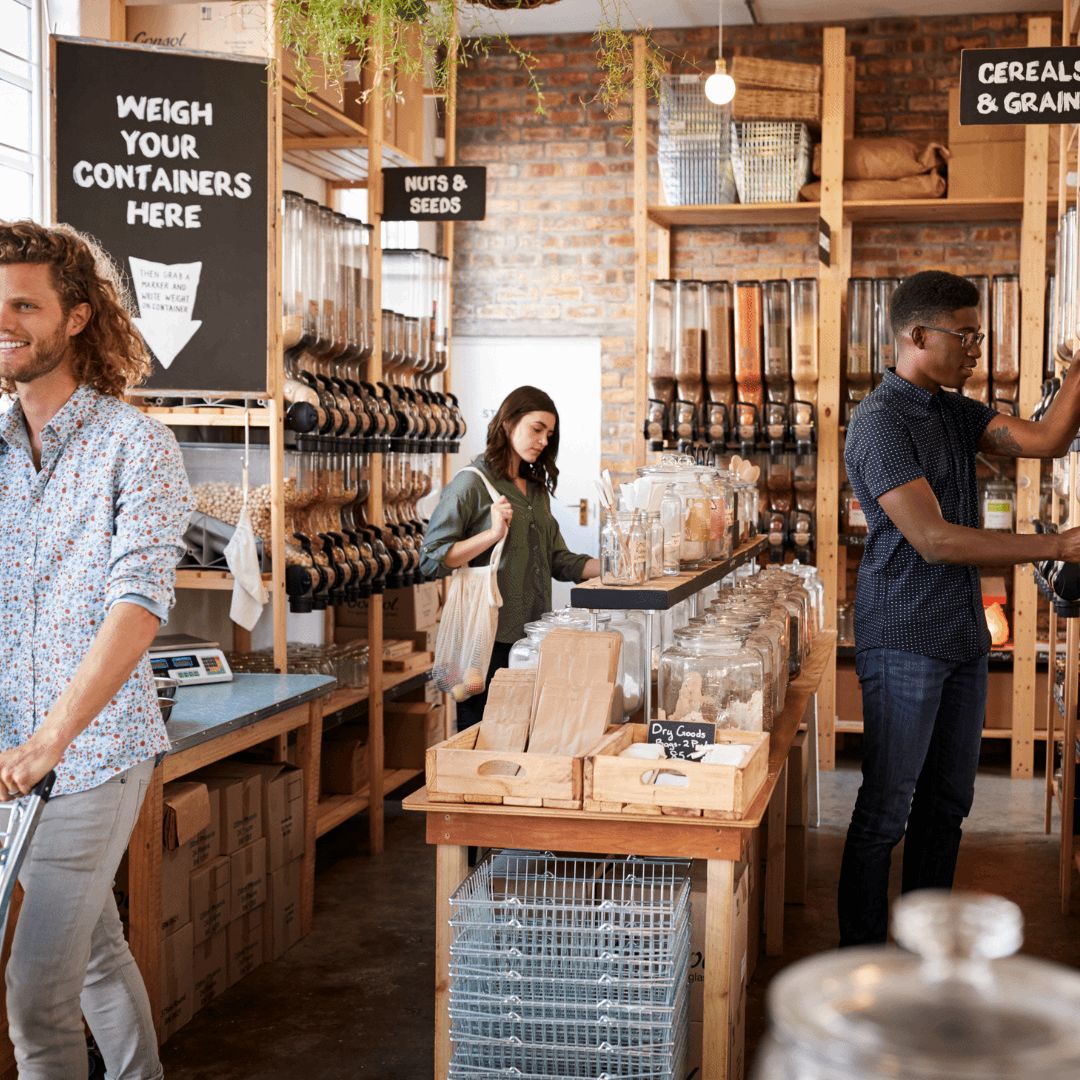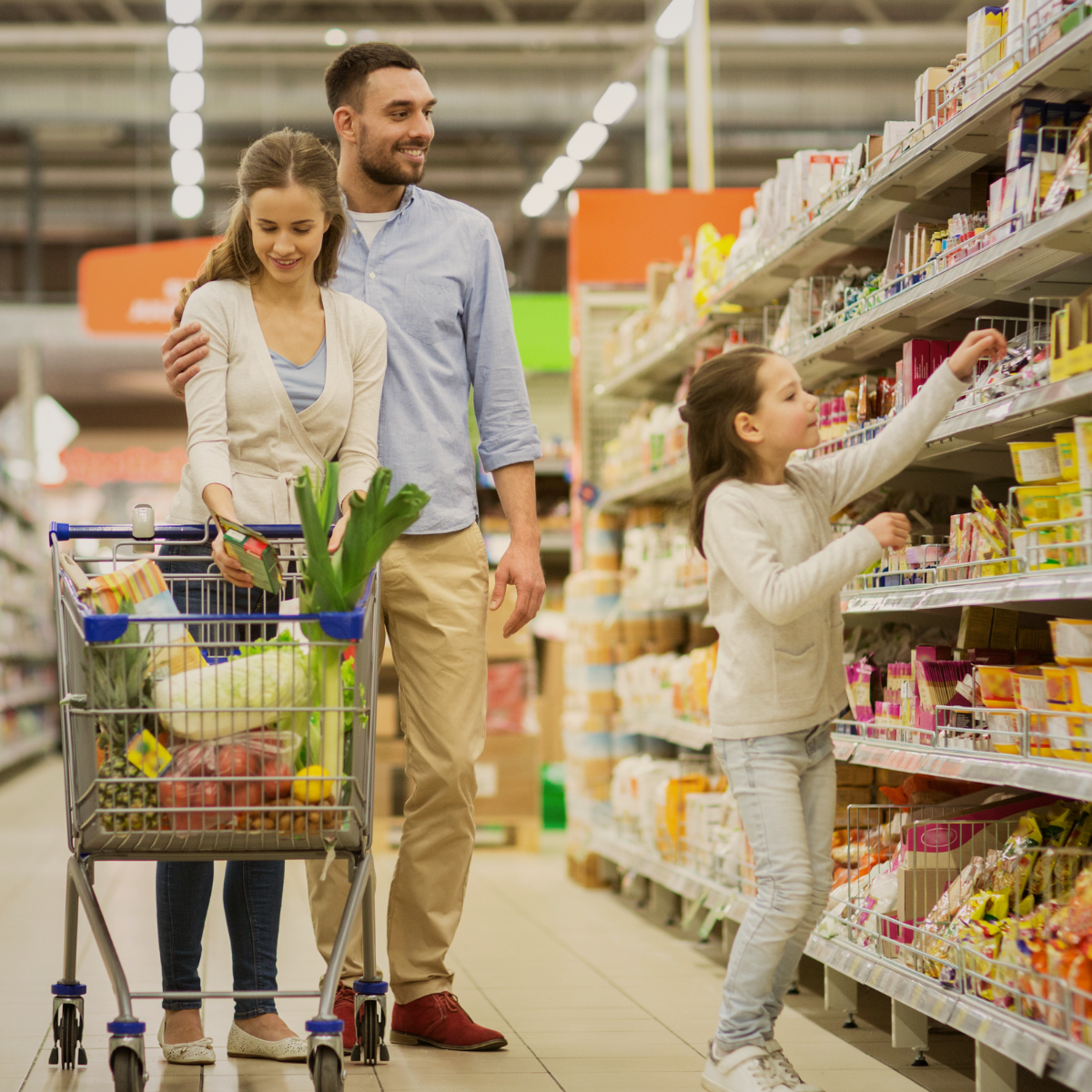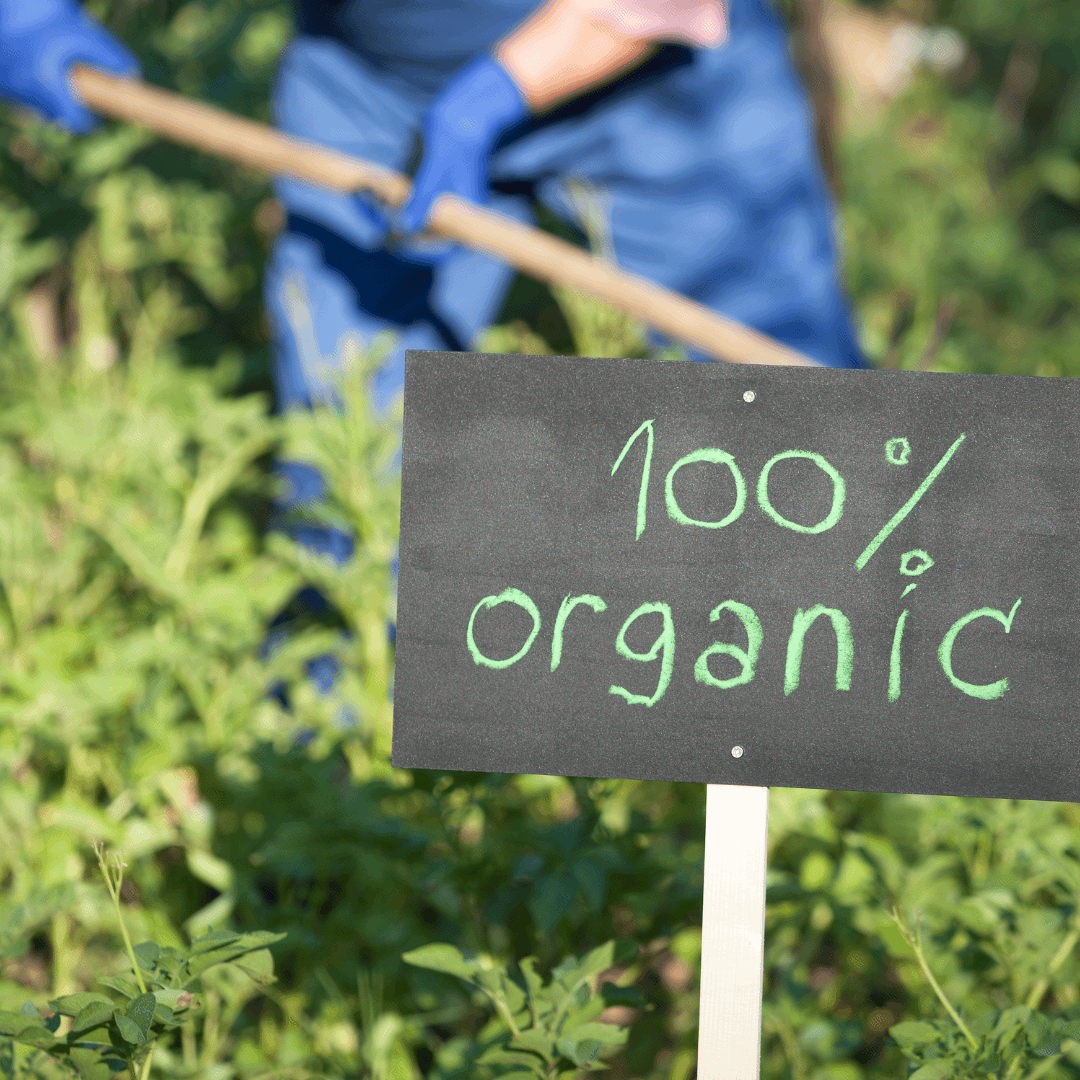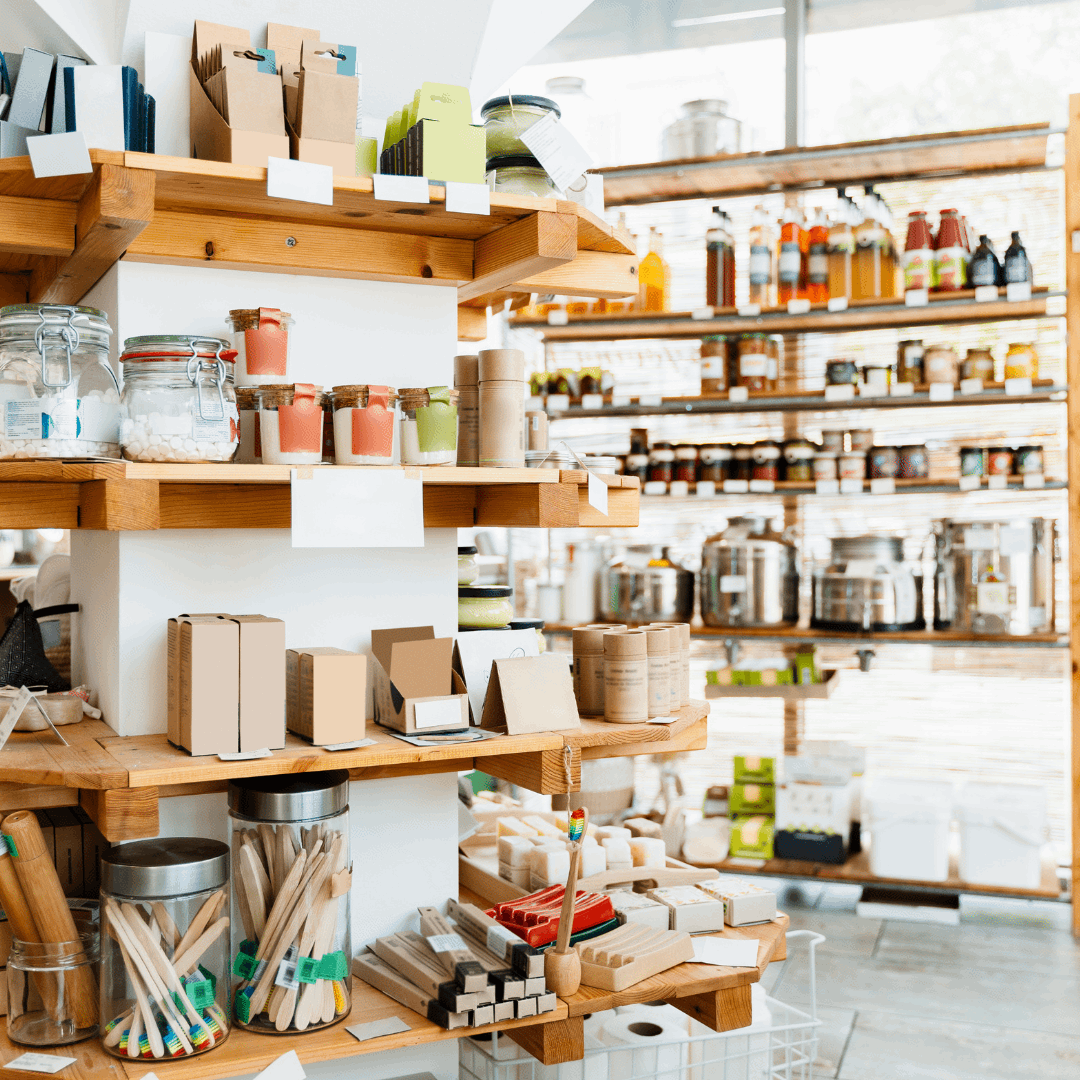The overall demand for natural products in the United States is increasing. This is reflected by its booming market growth, a growth even larger than that of the overall food market. In fact, according to the results of the Organic Trade Association’s 2025 Organic Market Report, the U.S. organic sales increased by 5.2% in 2024 compared to 2023, marking a significant growth even double that of the total food marketplace.
But while it opens a lot of opportunities for natural products brands, this increasing demand for organic products also means that a lot of companies will want their share of the profits within this lucrative niche, making competition fiercer than ever.
If you’re one of these CPG food companies, you might’ve recognized by now that a proactive approach to CPG marketing is the way to go, as your product won’t sell itself if it’s just sitting on the shelf, even when you own the most delicious and innovative natural product there is.
One CPG go-to market strategy that’s also increasing in popularity nowadays is providing in-store demonstrations, one of the most effective forms of product sampling in a natural grocery store that has the ability to effectively turn a curious onlooker into one of your most loyal customers.
In this article, we’ll discuss what an in-store demo is, its benefits as a marketing tool for natural food products, and how it can drive the CPG growth of your natural products company through effective retail conversion.
What is an In-Store Demo?
An in-store demo is a live, interactive presentation of your natural product within a grocery store where it’s being distributed. It involves providing a product trial that can engage the senses of the customers and allow them to experience your product firsthand. This, in turn, allows them to have a tangible way of evaluating if a product meets their needs and preferences.
It’s also a great way to build meaningful connections to consumers through close interactions where you can immediately share your brand story and convey relevant information about the product. In-store demos provide ways for your brand to reach consumers in a way that’s more personal and intimate than traditional advertising.
Benefits of an In-Store Demo for Natural Products
For natural food products, demos are particularly effective because they directly address a discerning consumer base. The primary objective is to increase product trial in the natural grocery aisle, giving you a platform to answer questions and highlight your quality ingredients. Through in-store demonstrations, shoppers can experience your product firsthand, resulting in:
1. Boosted Sales Velocity
Providing an in-store demonstration operates within the principle of “try-before-you-buy” strategy, one in which the brand provides small samples of their products to potential customers before they buy. It is a great way to increase brand awareness through direct experience, thereby removing purchase hesitation and building consumer trust.
The personal connection fostered through firsthand interaction with consumers can also lead to repeat buys, allowing you to establish a new, loyal customer base.
2. Enhanced Brand Awareness
A memorable demo creates a lasting impression that cuts through the retail clutter and generates buzz. It puts a face to your brand, making it more relatable and accessible to shoppers. This positive, personal interaction is a powerful way to build brand recognition and recall.
3. Valuable Consumer Education
In-store demonstrations are more than just hard selling your natural products. They’re also an opportunity for you to share your brand story, sourcing ethics, and your unique selling propositions that make your product superior to competitors. With in-store demonstrations, you can also educate consumers into your product’s health benefits and provide tips on how to maximize these benefits.
4. Direct, Honest, and Real-Time Feedback
In-store demonstrations provide an avenue for your target audience to raise questions or concerns about your product, which you can immediately address or take note of as priceless insights regarding market perceptions. Through their honest and unfiltered feedback, you also gain an opportunity to find ways to further refine your product, packaging, and overall marketing strategy.
5. Strategic Relationship Building
In-store demos allow you to build rapport not only with customers but also with crucial store staff. When department managers and employees know and love your product, they become powerful advocates. This can lead to better shelf placement, inclusion in store promotions, and overall support.
Engaging In-Store Demo Techniques for Your Natural Food Product
To maximize the impact of your in-store demonstrations on improving consumer perception and knowledge about your natural food product, it’s important to plan its execution. Here are our 9 tips on effectively planning and executing an in-store demonstration that converts:
1. Confirm Product Availability at the Store
Before you even think about setting up an in-store demo, ensure that your natural product is in stock and on the shelves of the store.
A demo is a significant investment of time, money, labor, and product. If customers cannot buy your product, your return on that investment is zero. You have essentially paid to advertise for a product that the store doesn’t have, wasting every dollar and minute spent.
Plus, it won’t look good for your brand image to have the customer and the store staff feel like you’ve wasted their time and floor space.
2. Communicate with the Department Manager About Your Plans
Don’t just show up unannounced—present yourself as a respectful partner, not an inconvenient guest. Communicate with the department manager well in advance to schedule your demo and discuss logistics. This shows respect for their time and helps ensure a smooth and collaborative event.
3. Know and Follow the Retailer’s Rules and Requirements
Every retailer has its own set of rules and requirements for in-store demos, which are aligned with the specific shopping environment and brand image that they want to cultivate. Familiarize yourself with these guidelines and follow them to the letter.
This will help you maintain a good relationship with the store and ensure that you’ll be invited back for future demos. Note that it’s also your responsibility to train your demonstrator to ensure maximum compliance on store guidelines when conducting the demo.
4. Schedule Demos on the Busiest Shopping Days
To reach the maximum number of potential customers, schedule your demos on the busiest shopping days, which are typically weekends. If possible, coordinate with the shop to know the spot with the best foot traffic, which can further allow you to maximize the visibility and reach of your in-store demonstration.
The goal is to place your demo directly in the natural path of shoppers, forcing them to notice you. You want to intercept them on their journey, not hide in a corner, and hope they find you. High visibility is crucial for sparking curiosity and increasing impulse product trial at the natural grocery store.
5. Use Knowledgeable and Passionate Brand Ambassadors
The person conducting your demo is the face of your brand. They should be knowledgeable about your product, passionate about your brand’s mission, and able to engage with customers in a friendly and authentic way.
No one knows your brand better than you do, making you the ideal choice for in-store demonstrations. However, if it’s not possible due to time constraints or other commitments, you may choose a member of your team or a trusted demo partner who shares your passion and can show as much enthusiasm as you when presenting your natural products.
6. Offer Coupons and Incentives to Both Consumers and Store Staff
Encourage immediate purchases by offering consumer-facing coupons that can offer them discounts or free products for a limited time. The urgency of time constraints and discounted options (think of FOMO!) can further incentivize them into purchasing, making their mindset shift from “I can get this anytime” to “If I want this deal, I must act now”.
And don’t forget the store staff! Providing them with VIP or free product coupons can turn them into powerful advocates for your brand. Once a staff member has tried and genuinely enjoys your product, they become an unpaid, highly trusted extension of your sales team who wouldn’t hesitate to recommend your product to customers asking for suggestions.
7. Bring Swag to Engage Customers
People love free stuff. Branded swag (“Stuff We All Get”) or promotional merchandise, such as reusable bags, pens, or keychains, can help create a memorable experience and keep your brand top-of-mind.
A food sample is a temporary experience, gone in seconds. Meanwhile, branded merchandise gives your brand a physical, lasting presence in the customer’s life, creating an emotional connection and sense of goodwill.
Also, take note that the type of swag you give your target audience should be chosen strategically—the best swag is useful and contextually relevant to your product or brand ethos.
8. Take Detailed Notes on Feedback During the Demo
Pay close attention to customer and staff feedback during the demo. To make the most of your time, consider in-store demos as not just a marketing activity, but also an invaluable market research opportunity.
Take detailed notes on their comments, questions, and suggestions. This information can be useful in refining your product and marketing strategy.
9. Know What Equipment You’ll Need to Bring
Don’t assume that the store will provide everything you need. Assuming the store will provide for you is not only unprofessional but also risky, as a missing item (like an extension cord or sample cups) can completely derail your demo.
Clarify in advance what equipment you need to bring, such as a table, signage, and any serving utensils. Arriving fully prepared shows respect for the retailer’s time and space and can also build upon your brand image through your professionalism reflected in your self-sufficiency.
Design Effective CPG Food Marketing Strategies With VDriven
In-store demonstrations are powerful tools that can help in effectively driving retail conversion of natural products.
At VDriven, we’re committed to helping our clients achieve sustainable CPG growth through well-informed and well-executed strategies tailored to the needs of your natural products company. Our services are guided by a relevant background in CPG consulting and our years of CPG industry experience.
Let’s work together to take your natural products to the next level. Contact Vdriven today to learn how our sales and marketing expertise can help you stand out and succeed against your competition.






